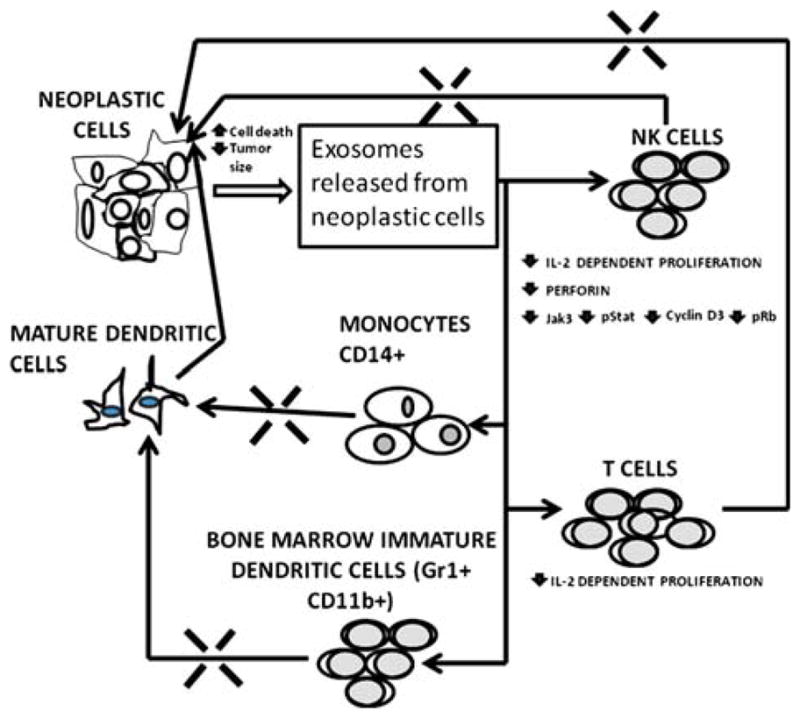Fig. 1.

Demonstration of how neoplastic lesions inhibit the immune system by the release of exosomes. Exosomes inhibit the number and actions of NK cells shown by the blockage of the pathway between NK cells and the tumor. Similarly, exosomes inhibit the number of T cells that can infiltrate tumors. Also shown are the interaction of exosomes with monocytes and immature DC, which prevents both from forming mature DC. The decrease in DC, NK cells and T cells in the tumor causes a reversal in the cell death usually caused by these cells and results in a decrease in immune system-induced death of neoplastic cells and growth of the tumor.
